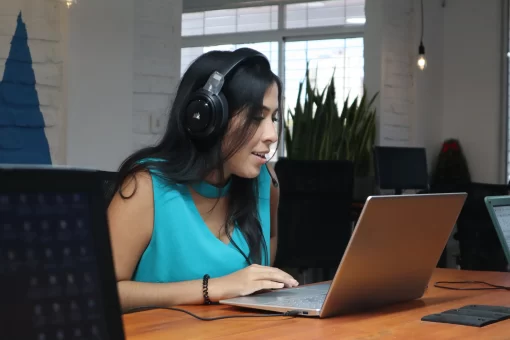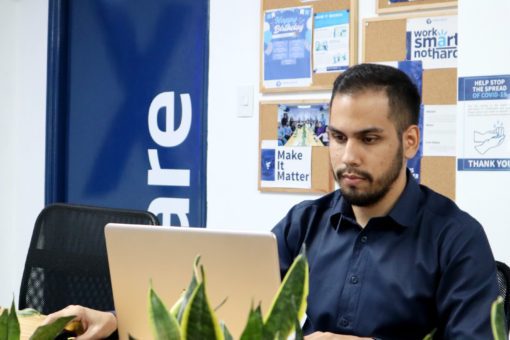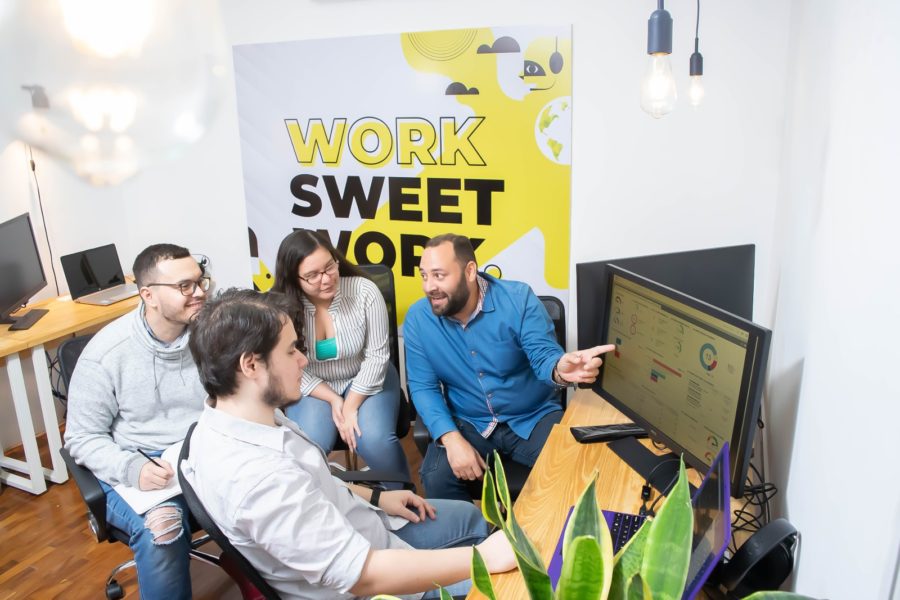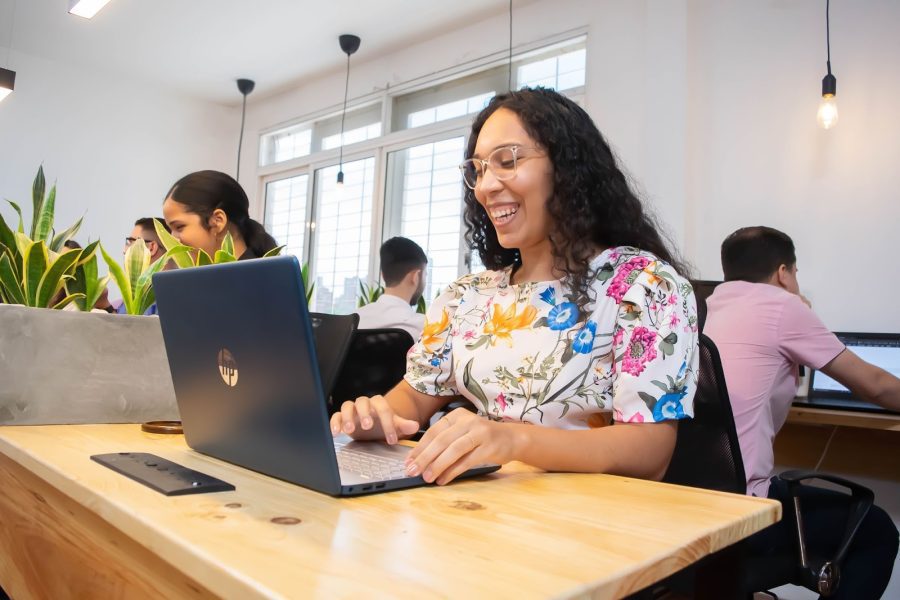To be or not to be, that is the question: to succumb to the pace of this fast world, or take the time to do one thing at a time… it might be a little dramatic to state these modalities of work as a dilemma, but at times, choosing one looks like it. The question we are asking today is Multitasking vs. Monotasking, which one should we practice daily?
We are in a very fast era, loaded with information that pops up everywhere and all the time in our faces; it’s only natural for us to try to make as much as we can with the time we have, and for a long time, multitasking looked like the perfect option for that.
Nonetheless, as the world speeds up, practices that try to help you decelerate, like yoga or mindfulness, are becoming stronger and highly demanded. So, it was very likely that soon some researchers would start looking at the occupational sphere and question the fast and stressful methods that are very popular, like multitasking.
Sometimes it looks like it is a matter of personal interests if you are into Formula 1 you are a multitasker and if you like nature and coloring books you are bound to monotasking; but truth be told, this goes beyond personality traits and into what is best for you, your health and your work. Why don’t we get a look into both sides of the coin?
Multitasking: Pros

Some people take pride in their ability to manage many things at once. They can have a business call while cooking dinner and watching the kids, which makes them superior in a way. It comes in handy on some occasions, but rather than making them better, it can improve their creativity.
Research from the University of North Carolina showed that students who multitasked produced ideas that were coded as more creative.
And after establishing the link between multitasking and creativity, they asked themselves “Why does this happen?” And found that it is because multitasking causes a higher demand for cognitive resources like selective attention and working memory, therefore it activates more of the brain so the demands could be fulfilled, and this involves cognitive flexibility, so we can use that extra energy in many ways.
The activation and cognitive flexibility assessments also showed that those two mental states led to greater creativity.
And well… cognitive flexibility makes sense because when you are multitasking you have to switch your attention from task to task, as well as the brain’s increase on activation, since you’d perform different tasks at once you have to put different skills to use.
In the previous example, you’d have to talk and process what the client says on the phone while cutting some vegetables, without getting either injured or losing sight of the kids. Your brain has to move your hands, phonate your words, process the auditive stimuli that are being inputted, and think of an answer, all while looking up to check on the kids every once in a while. It’s only natural to be creative when you have to come up with a way to do everything simultaneously and successfully.
And even though it’s been proven otherwise, you’d have to admit that multitasking gives you the illusion of saving time and therefore being more productive.
Multitasking: Cons
Let’s get real here… by doing too many things, you might start spreading too thin. You are not giving your full attention to any task and that can be counterproductive. One study in 2016 found that a two or three-second interruption of one task with another can double your mistakes, so by multitasking you might decrease the quality of your results.
When you are busy trying to do everything at once, you have no time to prioritize, you do the tasks as they come, which leads to the difficulty of disregarding irrelevant information, so you might end up doing unimportant tasks before urgent ones. Even though multitaskers’ working memory is very active, retaining information becomes hard for the, since some details get lost when switching tasks.
Humans are creatures of habit, and multitasking makes us distract ourselves from a task to handle another, so, as Verena von Pfetten writes in The New York Times, by allowing this, we increase our brain’s need for distraction, our need for switching from one thing to another.
To be able to manage many tasks at once, we have to be alert, and even though a little stress is healthy, an excess of cortisol could cause some severe health issues, like insomnia or chronic stress. We also have an article on multitasking, so click here if you would like to check it out.
How can you do it efficiently? By selecting a task that could be multitasked and does not require that much attention to detail, also taking time off, and avoiding burn-out, balance is crucial.
Monotasking: Pros
Monotasking conserves your energy by eliminating the distracting action of switching back and forth between tasks — since you don’t have to do the work of constantly refocusing on different tasks, those foggy seconds where your brain starts reloading to get back on track with the new task are gone, not only saving energy but also time.

It also produces a better quality of work, since you can fully concentrate on what you are doing, making avoiding errors easier.
By doing one thing at a time you can also practice your ability to prioritize, it is as simple as taking five minutes before starting to work and picking the most important tasks to get done so you can tackle them first.
When you are fully present in one activity you can give yourself the chance to enjoy the process, get to understand what you are doing better, and see the beauty in it while promoting self-discipline, because distractions are everywhere, and ignoring them to complete your task is a very arduous achievement. So, this also strengthens your focus, helping you maintain your attention on one thing only.
By doing less, you can achieve more; sounds weird, doesn’t it? But it is only because we are too used to overworking ourselves. When you are doing one thing, being as present as you can be, you will likely finish faster, therefore having time to address more tasks and being able to complete them in the best way possible, without that much stress from trying to do everything at once.
Monotasking: Cons
Monotasking is hard to achieve… concentrating only on one thing can be a challenge. The brain doesn’t quite know how to do it, and if you think about it, it is never doing just one thing — to talk, many systems are coming together, like the respiratory system filling your lungs and the diaphragm helping you get that air through your vocal cords so they vibrate while your mouth articulates the phonemes that match the word you thought to say.
Monotasking surely requires lots of self-discipline, keeping yourself from distractions; and without a clear plan of action, a lot of time can be wasted. And let’s not forget to mention that today’s world is not exactly built for that yet. We adapted to make multitasking the way to go, and now we have to readapt to monotask again.
How to do it efficiently? Block distractions, there probably are no messages that can’t wait 30 min to be responded to, if you have an important call schedule it, but try accumulating the distractions every half hour, so you’ll have 30 min of complete focus and a moment to check your messages, look for a glass of water and such. Find a middle ground organize it, and make it comfortable for you.
So… which one is better?
Honestly, it’s up to you. Everyone’s needs are different, and the best we can do is to know ourselves so we can decide what is best for us and what we need to do. Balance is key, and complementing both ways of work depending on the situation may be an option for you, but maybe not. So, why don’t you let us know what works best for you?
See more articles by Laura Navarro.






